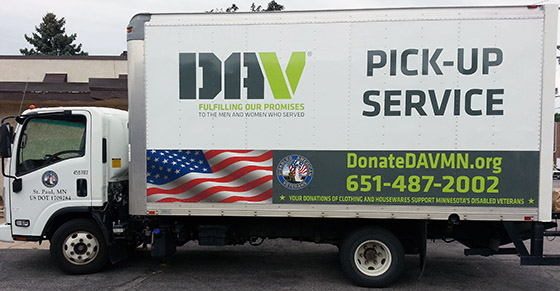One of the most common ways to dispose of an old car is by donating it. In recent years, charities have been actively promoting and encouraging people to donate their used vehicles in exchange for a tax deduction. This option not only benefits the donors but also provides significant support to charitable organizations.
Toc
Introduction to Car Donation

Car donation is the process of giving away a used vehicle to a charitable organization. The organization then either uses the car for their own purposes, such as transportation for staff or clients, or sells it and uses the proceeds for their cause.
What is Car Donation?
Car donation is a popular way for people to get rid of their old vehicles while also making a positive impact in their community. Instead of selling the car or trading it in, individuals can donate it to a charity and receive a tax deduction.
How Does It Work?
The first step to donating your car is finding a reputable charity that accepts vehicle donations. There are many national and local organizations that have car donation programs, so do some research to find one that aligns with your values and goals.
Once you have selected a charity, you will need to provide them with information about your car, such as make, model, year, mileage, and condition. They may also ask for proof
Imagine transforming an old, unused vehicle into a powerful force for good. By donating your car to a non-profit organization, you can support a cause you believe in, simplify your life, and even enjoy some tax benefits—all while making a tangible impact on your community. In this article, we’ll explore how car donations work, the advantages they offer, and share inspiring success stories to illustrate the difference you can make.
Why Donate Your Car?
There are several reasons why you might consider donating your car instead of selling or junking it.
- Support a cause: By donating your vehicle, you can contribute to a cause that you believe in. This could be anything from supporting veterans, helping children in need, or providing disaster relief.
- Tax deductions: When you donate your car to a qualified charitable organization, you can claim a tax deduction for the fair market value of the vehicle. This means that you could potentially save hundreds or even thousands of dollars on your taxes.
- Simplify your life: Getting rid of an old car can be a hassle, whether it’s through selling it or trying to junk it. By donating it, you can simplify your life and free up space in your driveway or garage.
How Car Donation Works in Detail

Donating a car is a straightforward process. Here’s a step-by-step guide to get you started:
Choose a Non-Profit Organization
Selecting the right non-profit organization is crucial to ensure that your donation makes a genuine impact. Start by researching local charities or national organizations that appeal to you. Look for those with a clear mission statement, positive reviews, and transparency regarding how they utilize donated vehicles. Many charities now have specific car donation programs that outline how the vehicle will be used or sold, and how the proceeds will benefit their cause. Once you’ve identified a few options, reach out to them with any questions you may have. A reputable organization will be more than willing to provide you with information on their programs and how your donation will contribute to their work.
Preparing Your Vehicle for Donation
After selecting a charity, it’s time to prepare your vehicle for donation. Make sure to clean both the interior and exterior to present your car in the best possible condition. Removing personal items and checking to ensure that the car is in a safe and usable condition will also be appreciated. Gather essential documents, such as the title of the vehicle and maintenance records, as these may be required by the organization for processing the donation. If applicable, you may also need to cancel your insurance on the vehicle and inform your local Department of Motor Vehicles about the transfer of ownership. This proactive step ensures a smooth transition for both you and the charity.
Donation Process
Once your vehicle is ready, you can either drop it off at the designated location or arrange for pick-up by the charity. If you choose to have it picked up, make sure to schedule a convenient time and place for both parties. Upon receiving the donation, the organization will typically provide you with a receipt acknowledging your contribution and any necessary tax forms. Be sure to keep these documents safe as they will be required when filing your taxes.
Success Stories of Car Donations

Car donations have made a significant impact on numerous individuals and organizations. Here are just a few success stories that demonstrate the positive outcomes that can result from donating a car:
Assistance for Families in Need
One inspiring success story involved a family in dire financial straits. Struggling to make ends meet, they found themselves unable to afford necessary transportation for work and school. By donating an old van, a generous individual enabled the local charity to provide this family with reliable transportation. This act not only alleviated their immediate transportation issues but also opened up employment opportunities, leading to renewed stability and hope for their future. Such impactful donations create a ripple effect, enabling families to thrive and overcome obstacles in their lives.
Supporting Non-Profit Missions
In another instance, a non-profit organization dedicated to helping homeless shelters received a donated vehicle that was transformed into a mobile service unit. This vehicle allowed the organization to reach underserved communities more effectively, providing essential services like food distribution, healthcare check-ups, and clothing drives right where help was needed most. The added mobility not only increased the charity’s outreach but also fostered relationships within the community, illustrating how a single car donation can fuel an entire mission and profoundly alter lives. Through these success stories, we see the tangible benefits that arise from car donations and the positive outcomes they inspire.
Schedule Pickup or Drop-off
Now that your vehicle is prepared and you have chosen a charity, it’s time to schedule the logistics for your donation. If the organization offers the option, arranging for a pick-up service can provide convenience, especially if the vehicle isn’t in a drivable condition. Most charities will have a system in place for scheduling pickups that allows you to choose a time that works best for you. Be sure to confirm any specific requirements they may have regarding accessibility or location. If you opt to drop off the car, check the charity’s hours of operation to ensure that you arrive at an appropriate time. Remember to bring all necessary paperwork, including the title and any relevant forms, to ensure a smooth handover during the donation process. A seamless experience reinforces the positive impact of your generosity, making it even more gratifying.
Final Steps: Tax Deduction and Acknowledgement
After successfully donating your vehicle, it’s crucial to follow up on your donation for tax purposes. The charity will typically issue a receipt that details the donation, which serves as documentation for tax deductions. Make sure to keep this receipt along with any forms they provide, as they will be needed when you file your taxes. Familiarize yourself with the IRS guidelines regarding vehicle donations, as these can vary based on the vehicle’s value and the organization’s status. By handling these final steps properly, you’ll both honour your contribution and maximise the benefits of your generous act, all while helping those in need.
Tax Benefits

One of the significant advantages of donating your car is the potential tax deduction. Here’s how it works:
Fair Market Value
When donating your vehicle, the tax deduction you can claim is generally based on the fair market value (FMV) of the car at the time of the donation. The FMV is what a willing buyer would pay to a willing seller for the vehicle in its current condition, typically lower than the retail price listed for similar models. To determine the FMV, consider using resources like the Kelley Blue Book or NADA Guides, which provide valuation tools based on make, model, age, mileage, and condition of the vehicle. If the charity sells the car rather than uses it in its operations, the deduction may be limited to the sale price of the vehicle; in such cases, the organization is required to inform you of this amount. Understanding how FMV impacts your deduction is crucial to fully leveraging the tax benefits of your generous contribution while ensuring compliance with IRS regulations.
Applicable Forms
When filing your taxes, make sure to include the necessary forms that document your donation and tax deduction. The charity will typically provide you with a receipt or acknowledgement letter along with any required tax forms (such as Form 1098-C) for vehicle donations. Be sure to keep these documents safe and accessible when preparing your taxes, as they serve as evidence of your contribution.
Consult a Tax Professional
To navigate the complexities of tax deductions and ensure that all details regarding your car donation are accurate, it may be beneficial to consult a tax professional. They can provide personalized advice tailored to your financial situation, helping you understand the potential tax implications while ensuring compliance with IRS regulations. A tax expert can also guide you on any state-specific requirements that may further influence your deduction. By seeking professional advice, you can confidently maximise the benefits of your donation and ensure that you are making the most of your charitable contributions.
Environmental Impact of Car for Donation
Donating your car also positively impacts the environment:
Recycling and Reuse
When you donate your car, you contribute to recycling and reusing valuable materials, reducing the environmental footprint associated with vehicle disposal. Many charities partner with recycling programs that ensure older cars are dismantled and recycled properly. Metal components, plastics, and rubber from tires can be repurposed, minimizing waste and conserving natural resources. This process not only diverts vehicles from landfills but also cuts down on the energy required to produce new materials. By choosing to donate instead of discard, you play a vital role in promoting sustainable practices that benefit both communities and the planet.
Reducing Carbon Footprint
Additionally, donating your vehicle can lead to a reduction in overall carbon emissions. When vehicles are recycled, the process consumes less energy than manufacturing new vehicles from scratch, helping to lower greenhouse gas emissions. By extending the life of car parts through recycling and ensuring that hazardous materials are handled properly, you help mitigate environmental risks. Moreover, supporting organizations that use donated vehicles for essential services can mean more people receive help, ultimately leading to fewer emissions from other transportation methods. Your decision to donate not only supports a charitable cause but also aligns with positive environmental stewardship.
Case Studies

To illustrate the real-world impact of car donations, here are a few inspiring success stories:
Local Animal Shelter
One compelling example of how car donations can make a difference is seen in a local animal shelter that relies on such contributions to support its operations. When a community member donated their used vehicle, the shelter was able to sell it, thereby generating funds to purchase necessary supplies like food and medical care for the animals in their care. As a result, the shelter improved its ability to rescue and rehabilitate more animals, ultimately increasing adoptions and fostering a stronger community bond around animal welfare. The ripple effect of this donation not only enhanced the lives of countless animals but also inspired others to contribute, creating a movement of generosity that benefits both the community and the environment.
Youth Sports Programme
Another poignant case involves a youth sports programme that thrives on donations to facilitate activities for underprivileged children. When a supporter donated a car, the proceeds from its sale were used to fund uniforms, transportation, and coaching services for young athletes. This funding enabled the programme to expand its reach, offering sports opportunities to more children who otherwise might not have access. The positive outcomes were immediate—kids developed team spirit, improved their physical health, and gained self-confidence. This example showcases the powerful impact of donating a vehicle, demonstrating how such acts of kindness can transform lives and uplift communities through engagement in healthy activities.
Conclusion
In conclusion, donating your car can yield significant benefits not only for charities but also for the wider community and the environment. By understanding the fair market value of your vehicle, ensuring proper documentation, and considering professional tax advice, you can maximise your charitable contribution’s impact on your tax return. Moreover, the positive ecological footprint associated with recycling and reusing materials underscores the importance of responsible disposal methods. The inspiring case studies of local organisations highlight the tangible differences that vehicle donations can make in people’s lives, fostering community development and environmental sustainability. As more individuals recognise these benefits, the movement towards car donations continues to grow, creating a cycle of kindness and support that reverberates far beyond the initial act of giving. Your choice to donate is not just about parting with an old vehicle; it is an opportunity to contribute to a cause greater than oneself, promoting a healthier planet and a more equitable society.









